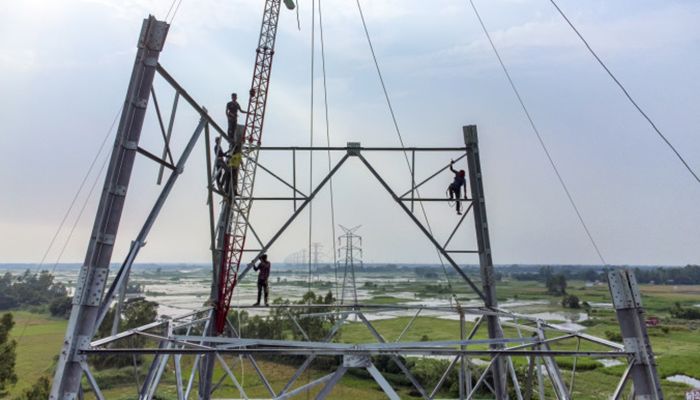
Staff Coresspondent
Publish: 31 Jul 2023, 10:35 am

Photo: Collected
After a tripartite agreement with India was signed, Nepal is preparing to change the projects whose electricity will be supplied to Bangladesh. According to officials, the Nepal electricity Authority (NEA) would give India the list of hydropower projects for clearance after the electricity pricing issue has been settled.
"As India has agreed to allow the transmission of a maximum of 40 megawatts of electricity through its existing transmission line for export of Nepal's power to Bangladesh, the NEA is preparing to send alternative hydropower projects for the southern neighbour's approval," said NEA Power Trade Director Prabal Adhikari, reports the Kathmandu Post.
Bangladesh and Nepal have agreed to work on a 50MW power trade. The NEA had asked the Indian government's permission to sell Bangladesh the electricity produced by the 52.4 megawatts (MW) Likhu-4 plant. India said that it will only permit the transfer of up to 40MW, taking into account the transmission infrastructure's current underutilized capacity.
"We now plan to sell electricity generated by the 24MW Trishuli Hydropower Project and another project whose combined capacity reaches 40 MW–41 MW," said Adhikari.
Trishuli was one of the initial two projects to receive India's blessing for selling electricity on the national market in 2021.
A long-term power trade deal between Bangladesh and Nepal is being negotiated for the export of 40MW of electricity.
According to the 'Procedure for approving and facilitating Import/Export (Cross Border) of Electricity by the Designated Authority', it is required to get authorization from the relevant Indian authority in order to conduct electricity transactions through the Indian grid under the tripartite agreement.
"Once the issue of tariff is settled with Bangladesh, we will send the list of projects to India for necessary approval for exporting power to Bangladesh generated at those projects," said Adhikari.
The NEA plans to choose projects for exporting power to Bangladesh which have already got the southern neighbour's approval for exporting power to India.
"This will help fast-tracking the approval process from the Indian authorities," said Adhikari, adding NEA chose the Trishuli project which was built with the Indian government's assistance, because of that reason.
Nepal has requested permission from the Indian government to market electricity produced by an additional 18 hydropower projects in India. The permission has been stalled in the Indian bureaucracy since August 2021.
According to the NEA, these projects have a total generating capacity of more than 1,000MW.
When Nepal's Prime Minister Pushpa Kamal Dahal paid a state visit to India this year, India also made a point of expressing its willingness to help facilitate power commerce between its two neighbors.
Bangladesh agreed to sign a tripartite agreement featuring the NEA, the Bangladesh Power Development Board (BPDB) and the NTPC Vidyut Vyapar Nigam Ltd of India during the energy secretary-level joint steering committee meeting in mid-May. Nepali officials had said at that time that a consensus was reached on starting the trading of power within the wet season this year. But everything hasn't been ready so far for the trading of power between Nepal and Bangladesh.
NEA said the only thing remaining in the bilateral negotiation is determining the tariff of electricity.
"We are informed that the Bangladeshi side is in the process of forming a negotiation team on tariff," NEA Power Trade Director Prabal Adhikari said.
"We plan to offer a good tariff as a goodwill gesture, as it will be a government-to-government deal. A reference point could be the existing electricity price in Bangladesh," NEA Managing Director Kulman Ghising said.
The transmission fees and service fees that must be paid to the Indian authorities, according to NEA officials, have been mostly finalized.
The transmission fees will be assessed in accordance with India's open access regulations and will be equal to what power dealers in India already charge power purchasers.
Bangladeshi firms could also be required to pay service fees for the Indian company's attempts to secure regulatory permission from its government.
The costs would be collected by the NVVN, which is India's central organization for cross-border power exchange, according to NEA officials.
Subscribe Shampratik Deshkal Youtube Channel
Topic : Bangladesh Nepal India Electricity
© 2024 Shampratik Deshkal All Rights Reserved. Design & Developed By Root Soft Bangladesh